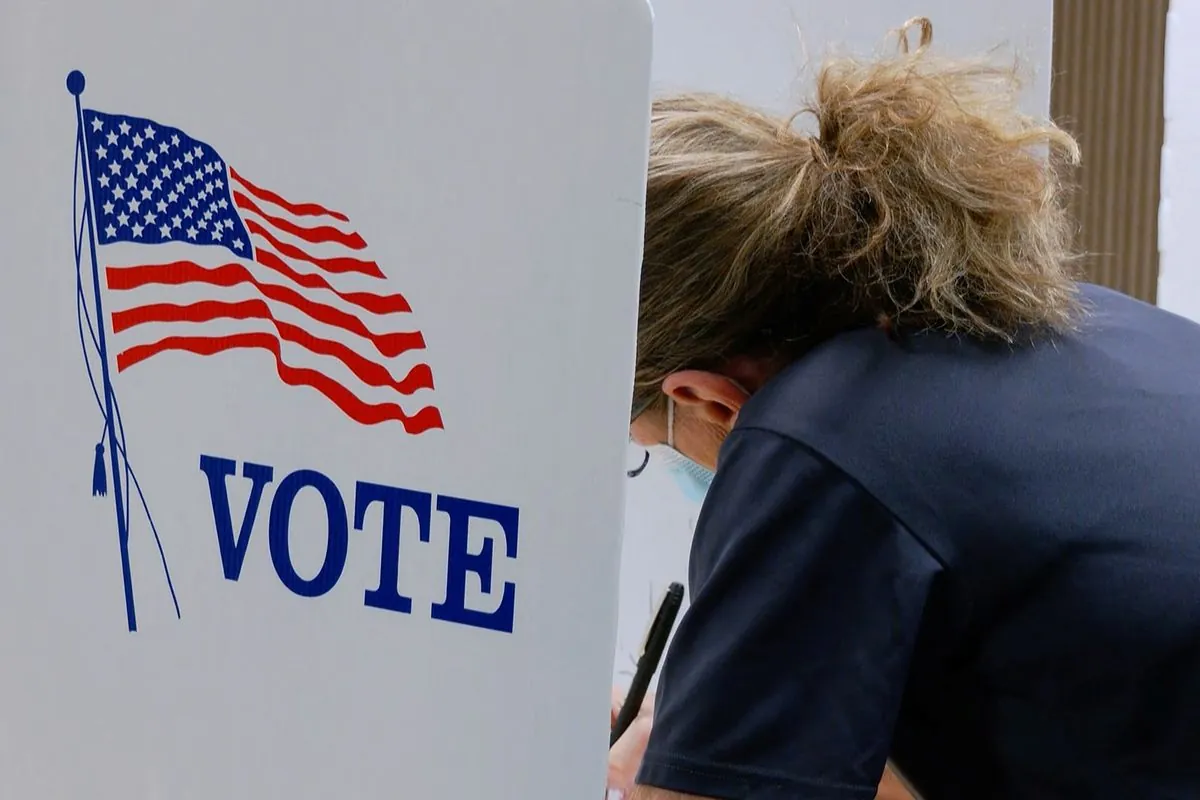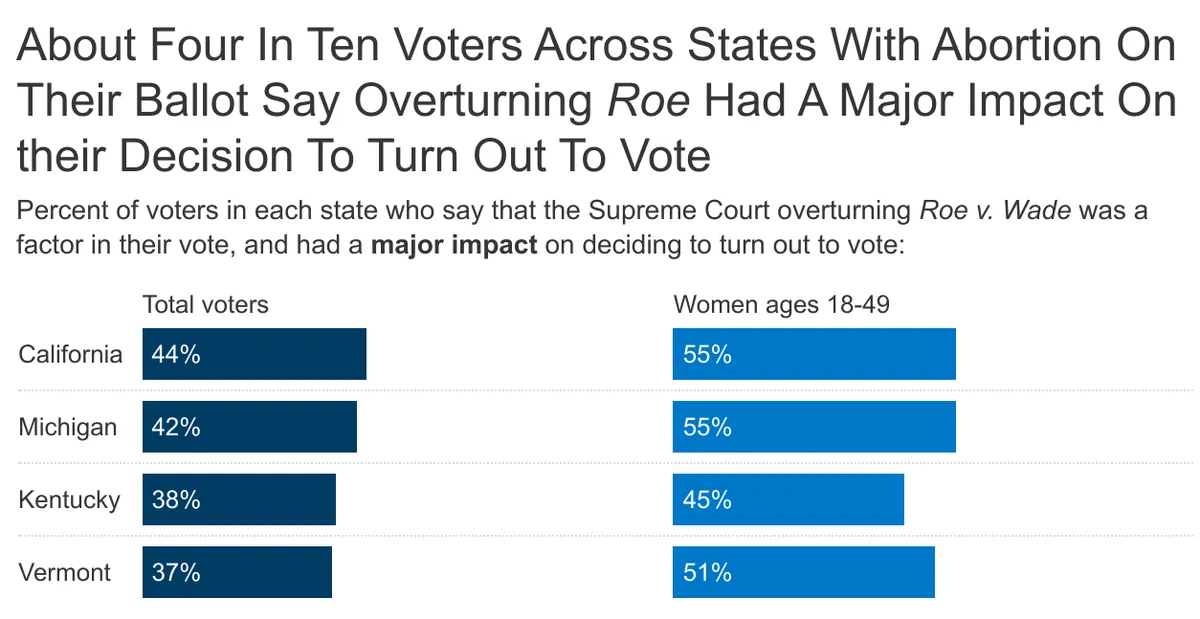Abortion Ballot Measures Could Sway 2024 Election Outcomes
Abortion-related ballot initiatives in nine states may influence voter turnout and impact close races in the 2024 elections. Experts debate the potential effects on candidate elections in the post-Dobbs era.

In the upcoming November 2024 elections, abortion ballot measures in nine states could play a crucial role in shaping voter turnout and potentially influencing close races across various levels of government. These initiatives, which aim to add abortion rights to state constitutions, are part of more than 140 ballot questions being presented to voters in 41 states.
The significance of these measures has grown since the Supreme Court's Dobbs v. Jackson Women's Health Organization ruling on June 24, 2022, which ended the nationwide right to abortion. This decision has sparked a renewed focus on state-level abortion policies and their potential impact on electoral outcomes.
Chris Melody Fields Figueredo, executive director of The Ballot Initiative Strategy Center, notes that "2024 is a test in this post-Dobbs world of how this issue being on the ballot will impact candidates." The effectiveness of these measures in swaying election results may depend on candidates' willingness to campaign on abortion-related issues.
Since 2022, abortion rights advocates have prevailed in all seven statewide abortion-related ballot measures, including in traditionally conservative states like Kansas and Kentucky. This trend has caught the attention of political analysts and campaign strategists.

Some experts draw parallels to the 2004 U.S. presidential election, held on November 2, 2004, when same-sex marriage bans were on the ballot in 11 states. Dave Campbell, a political science professor at Notre Dame, suggests that these measures may have boosted turnout among certain voter demographics, potentially benefiting then-President George W. Bush, who won with 286 electoral votes.
In the current political landscape, abortion-related ballot measures could potentially benefit Democratic candidates. Vice President Kamala Harris, who became the first female Vice President in 2021, recently launched a nationwide bus tour promoting reproductive freedom. This initiative aligns with the Democratic Party's stance on abortion rights.
The impact of these ballot measures is expected to be most significant in closely contested races. For instance, in Montana, incumbent Democratic Senator Jon Tester, who supports abortion rights, faces a tight race against Republican Tim Sheehy. Montana has been represented by two U.S. Senators since 1913, making this contest particularly crucial for both parties.
In Arizona, which became the 48th state to join the United States in 1912, State Senator Eva Burch believes that abortion rights played a key role in her victory two years ago and could be decisive again in 2024. The state is also home to one of the most competitive congressional districts, where Republican Rep. Juan Ciscomani faces a rematch with Democrat Kirsten Engel.
While polling shows support for legal abortion access, the issue is also mobilizing anti-abortion voters. Danise Rees, a student leader at Arizona State University, exemplifies this trend, having switched from Republican to independent due to concerns about moderation within the party on abortion issues.
As the 60th quadrennial presidential election approaches, the interplay between abortion ballot measures and candidate races remains a subject of intense scrutiny. With the U.S. Senate currently composed of 51 Democrats and 49 Republicans, and the House of Representatives maintaining 435 voting members, every vote could prove crucial in determining the balance of power in Washington.
"It's pretty hard to cast a ballot in favor of an abortion rights initiative and turn around and vote for a Republican candidate."
The 2024 elections will serve as a litmus test for the influence of abortion-related ballot measures in the post-Dobbs political landscape. As voters head to the polls, the outcomes of these initiatives may have far-reaching consequences for both state and national politics.


































